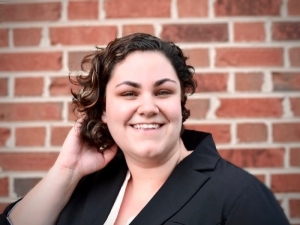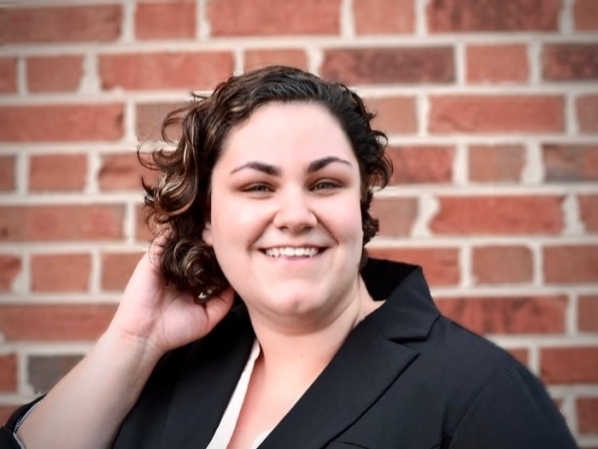Lia Phillips, M.S. Engineering Physics, Graduate student
From Currituck, North Carolina
For North Carolina Space Grant Graduate Research Fellowship recipient, Lia Phillips, pursuing the answers to previously unanswered questions of physics motivates her diligent research. Admittedly, Phillips acknowledges that the unknowns can occasionally be overwhelming, but she believes the process of discovery is what interests her the most about research, keeping her excited during long bouts of analysis.
Phillips, a graduate student pursuing an M.S. in engineering physics, is one of two Appalachian students recognized among this year’s award recipients. Jaden Miller, sophomore, pursuing a B.S. degree in physics, received an N.C. Space Grant Undergraduate Fellowship for his research on optical tweezing, a technique used to monitor how human cells are affected by radiation.
"I first met Lia as a student in one of my classes a few years ago. She immediately impressed me as a brilliant student in the classroom and one likely to succeed in research as well. Lia has been as successful in research as she is in the classroom. We are incredibly proud of her accomplishments,” Dr. Jennifer Burris, chair of and professor in Appalachian’s Department of Physics and Astronomy said.
The N.C. Space Grant Fellowship, funded in part by a NASA training grant, awards annual research scholarships to STEM (science, technology, engineering and mathematics) students from universities across the state, of both undergraduate, graduate and doctoral status. As a highly competitive fellowship program, all of the applicants are reviewed by external experts.
“The applicants were particularly competitive this year, with a record number of applicants,” acknowledged Sandra Canfield, assistant director of NASA/N.C. space grants.
On Appalachian’s campus, a fully automated laser tweezer raman spectroscopy system is being developed in order to allow more student researchers to take part in the work this tool enables. The system can be used to observe single cells and biological particles suspended in water-based solutions in addition to other small, non-biological particles. This fellowship will allow Phillips to contribute to this automation. Once the system is fully automated, it may be controlled remotely and contribute to future uncrewed space explorations, supporting NASA's space technology mission directorate.
The fellowship allowed Phillips to focus her summer around this project and continue learning about the automation process, something that she believes will be extremely beneficial to her future career and research endeavors.
During any other summer, Phillips would be spending most of her time in the research lab and having in-person research meetings with her mentors, Dr. Jennifer Burris and Dr. Brooke Hester. However, this summer looked differently for Phillips due to COVID-19. Phillips was not able to access on-campus resources that are fundamental to successfully completing research for her project until late June. She was one of few students who was given access to conduct research on campus during the summer.
“It was a much different experience than I expected, but being able to escape into this project has been a true resource for me,” said Phillips.
Prior to receiving the N.C. Space Grant Fellowship, Phillips was accepted for the Research Experience for Undergraduates program (REU) at Howard University in Washington, D.C. during the summer of 2019. After attaining her M.S. in Engineering Physics, Phillips hopes to continue working towards a Ph.D. in Electrical Engineering. Her aspirations for the future are inspired by her drive to utilize her education and resources to give back to local communities.
“The N.C. Space Grant Graduate Research Fellowship has been a large support to furthering my educational experience as a researcher and a physicist. I would like to thank the N.C. Space Grant for awarding me this great opportunity,” said Phillips.
###
About the Department of Physics and Astronomy
The Department of Physics and Astronomy’s curriculum has an applied nature that includes a core of fundamental physics courses and laboratory experiences. The department prepares graduates for a variety of scientific, teaching or engineering professions, as well as future educational endeavors. Learn more at https://physics.appstate.edu.
By Barclay Ann Blankenship
Sept. 1, 2020
BOONE, N.C.

